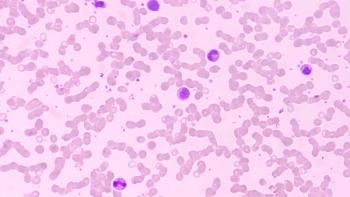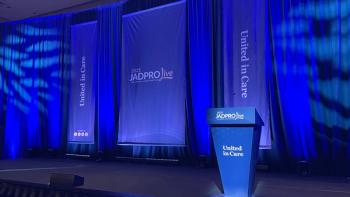
Catch up on recent regulatory decisions by the FDA in oncology, including actions in lung, hematologic, genitourinary, and gastrointestinal cancers.

Catch up on recent regulatory decisions by the FDA in oncology, including actions in lung, hematologic, genitourinary, and gastrointestinal cancers.

With evolving standards for handling hazardous drugs, nurses must comply with safety and handling guidelines.

Emily Coiro, MSN, AGACNP-BC, BMTCN; and Julie Zgola, BSN, RN, who work in stem cell transplantation, were matched with patients in need of a transplant.

Through the highs and lows of working in oncology nursing, being present with colleagues and patients alike is a gift.

Kristin Daly, MSN, ANP-BC, AOCNP, shares advice for preparing patients for possible adverse effects outside of clinic hours.

The FDA has approved durvalumab plus FLOT for the treatment of patients with resectable gastric or gastroesophageal junction adenocarcinoma.

Emily Shelby, MSN, FNP-C, emphasized that referrals to other specialties is key to managing heavily pretreated patients with metastatic colorectal cancer.

Jillian Thompson, MSN, ANP-BC, AOCNP, discusses how COCOON data improve toxicity management for amivantamab/lazertinib in frontline EGFR-positive NSCLC.

Pembrolizumab plus paclitaxel with or without bevacizumab boosted survival in patients with platinum-resistant, recurrent ovarian cancer.

Kennon McCollum, DNP, explains how multiday ES-SCLC chemotherapy regimens heighten myelosuppression risk and drive dose delays.

The FDA has approved intravenous or subcutaneous pembrolizumab combined with enfortumab vedotin-ejfv in the neoadjuvant and adjuvant MIBC settings.

Elizabeth Hubert, APRN, explains how to treat patients receiving luspatercept for low-risk myelodysplastic syndromes.

The addition of atezolizumab to BCG did not yield improved EFS compared with BCG alone in patients with high-risk non–muscle-invasive bladder cancer.

The FDA has converted its accelerated approval to a standard one for tarlatamab in extensive-stage small cell lung cancer.

The FDA has approved sevabertinib for the treatment of patients with HER2-positive nonsquamous non-small cell lung cancer.

Germline and somatic testing can inform treatment and family risk up front, but NGS is often held for recurrence, explained Courtney R. Arn, APRN-CNP.

The FDA granted standard approval to epcoritamab monotherapy and epcoritamab plus lenalidomide and rituximab for relapsed/refractory follicular lymphoma.

Nivolumab displayed significant RFS benefit compared with ipilimumab in patients with resected stage IIIB to IIIC or IV melanoma.

Gabriel Schwartz, MSN, NP, explains how mechanisms of action determine the safety of systemic treatments in metastatic colorectal cancer post chemotherapy.

Integrating PRO tools in survivorship care may help oncology nurses address ongoing emotional and physical needs of ovarian cancer survivors.

Here are 5 presentations that oncology APPs should know about, from patient management to practice management.

The FDA has approved a biosimilar of pertuzumab that is indicated for multiple breast cancer settings.

The FDA has approved ziftomenib for relapsed or refractory acute myeloid leukemia harboring NPM1 mutations with no alternative treatment options.

Kristi Orbaugh, MSN, RNP, AOCN, AOCNP, shared the key toxicities of each CDK4/6 inhibitor and how to monitor for them.

Care at every step is the ethical duty of nurses, says Katherine Brown-Saltzman, MA, RN, in this episode of Onc Nurse On Call.

After undergoing EBRT and brachytherapy at 14, an AYA cancer survivor discusses her experience with a rare vaginal cancer and Turner syndrome.

Catherine Boyles, RN, OCN, explains how to help patients help themselves when preparing for appointments.

Laura J. Zitella, MS, RN, ACNP-BC, AOCN, explains that later cytopenias should be monitored in patients undergoing CAR T-cell therapy.

Durvalumab plus FLOT chemotherapy improved overall survival in resectable gastric or gastroesophageal junction cancer, per phase 3 MATTERHORN data.

The FDA has approved subcutaneous daratumumab and hyaluronidase-fihj for use in patients with high-risk smoldering multiple myeloma.